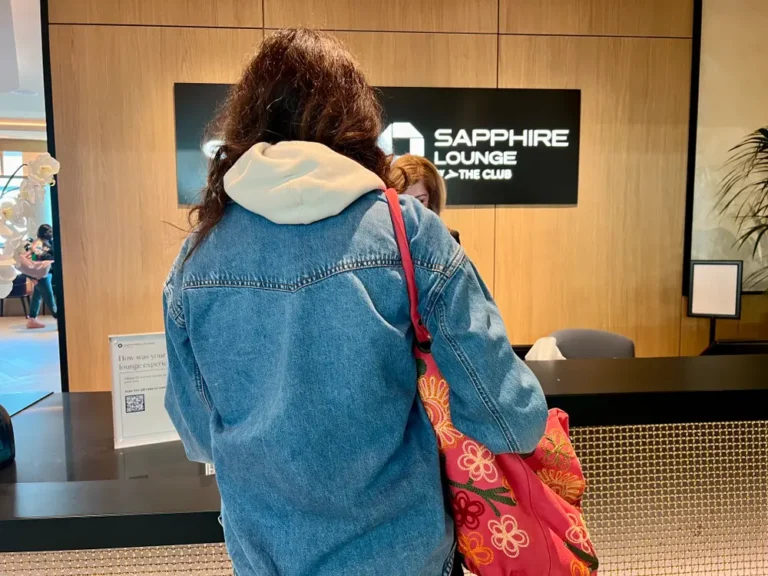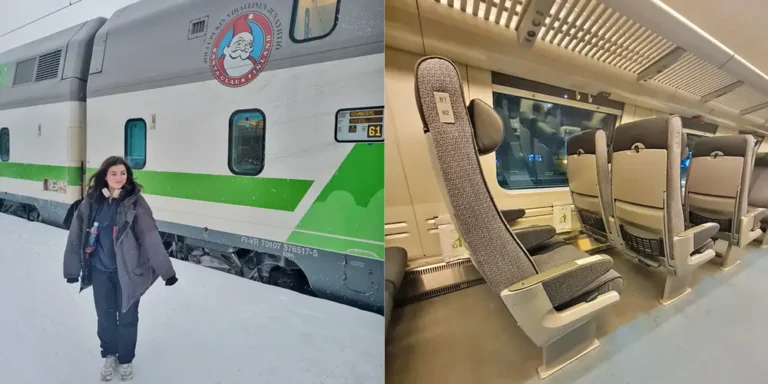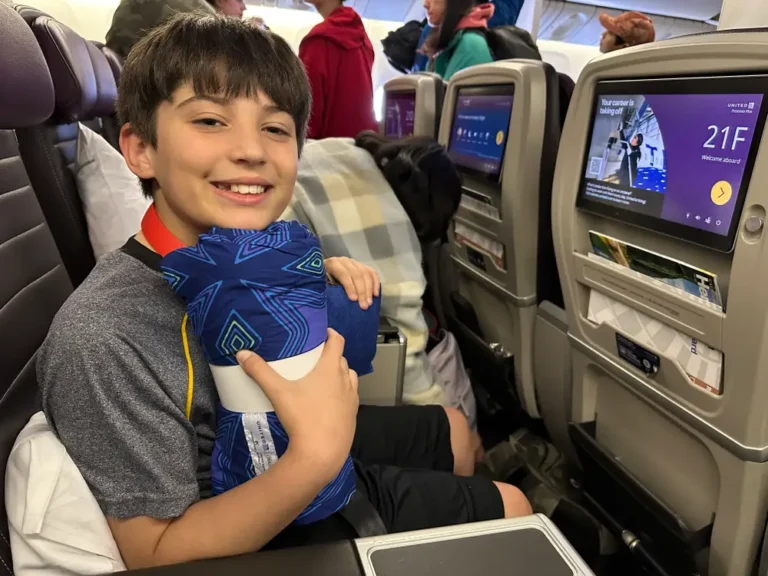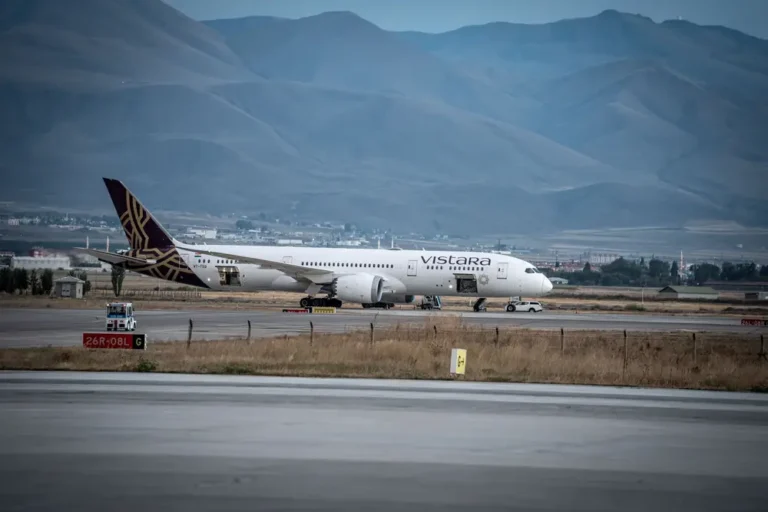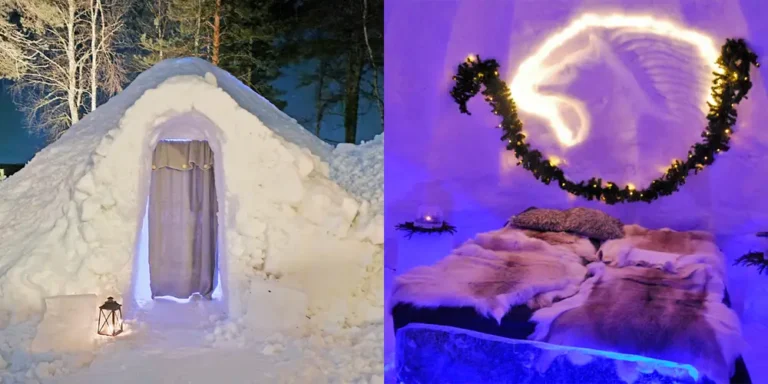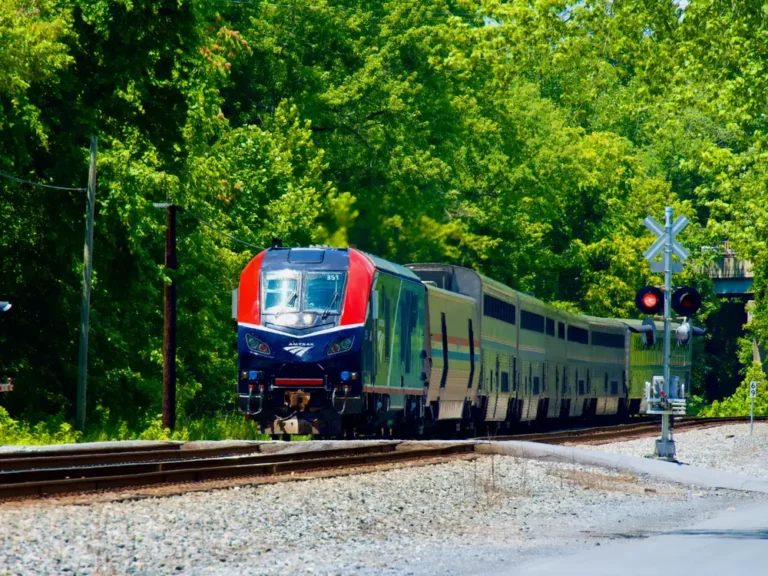I spent 77 hours traveling from California to DC by train. It was worth it, but there are a few things everyone should know before hitting the rails for a long ride.
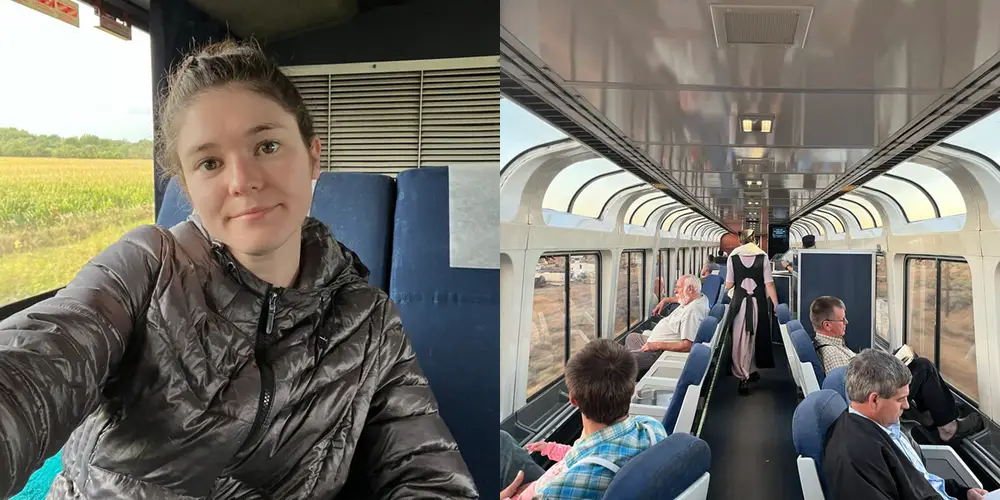
I rode two Amtrak trains to get from California to Washington, DC.
A few years ago, when flight prices were awfully expensive, I saw an Amtrak ticket from California to Washington, DC, for just $250 and snapped it up.
First, I hopped on the California Zephyr for a 53-hour ride from Emeryville to Chicago. Then, I transferred to the Cardinal line, which took me through the Appalachian Mountains to the nation’s capital in 24 hours.
I’d traveled by train numerous times before, but there were still some parts of the experience that surprised me — and some parts that I was glad I was prepared for.
There’s no WiFi on certain Amtrak routes. And even when there is, it can be spotty.
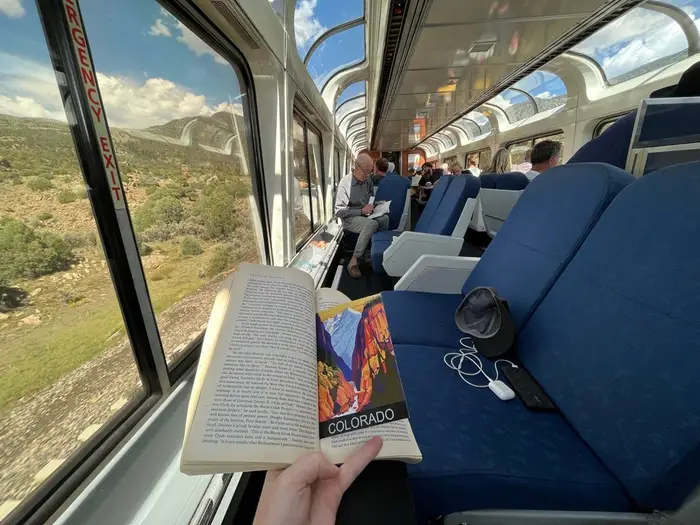
I made sure to bring a book on the train.
The California Zephyr didn’t have WiFi on board, and cell service was poor or nonexistent going through the Sierra Nevada mountains and parts of Nevada, Colorado, and Nebraska.
Luckily I had some downloaded movies and reading materials, which helped pass the time when I couldn’t use the internet.
I don’t think you can dependably work remotely from the train. Even when I was on the Cardinal line, which offers WiFi, I found the service cut in and out frequently.
At some stops, you can pick your seat, and the side you choose matters.
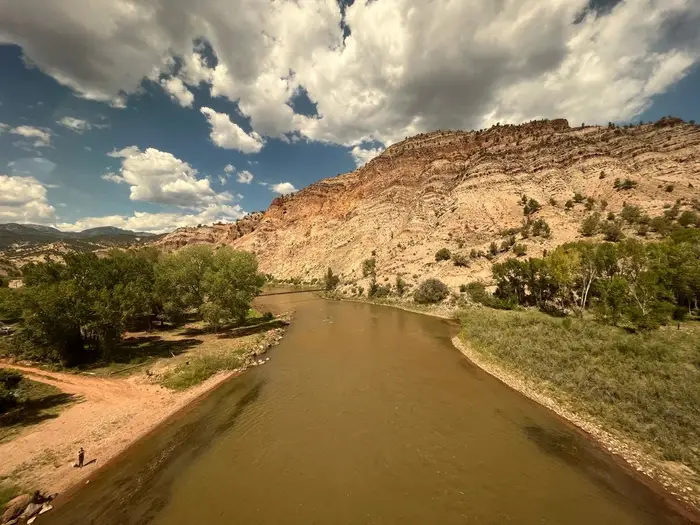
The views were different on each side of the train.
When I boarded the California Zephyr at the first stop of the line in Emeryville (right across the bay from San Francisco), I was able to pick my seat.
I made sure to take advantage of it because the seat you pick matters in terms of views.
If you want to see San Francisco Bay, Donner Lake, and the Rocky Mountains, sit on the left side. But the right is better if you prefer being up close to the Colorado River.
Whichever side you pick, you can always go to the observation car for even better views.
It can get cold on the train, so remember to bring a jacket and some comfortable clothes.
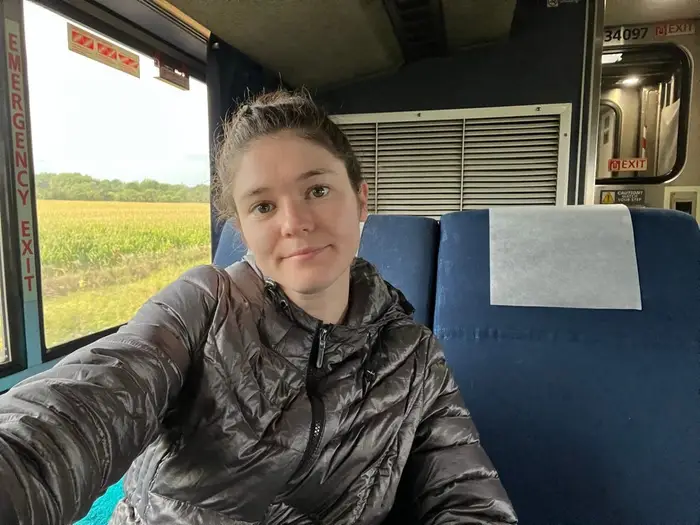
It got chilly on my trains.
Thankfully, the train cars are air-conditioned in the summer. But that can also make them quite chilly, especially at night.
I came equipped with some thermal leggings and a puffy jacket.
Make sure to wear clothes that you’re comfortable sitting in for long periods of time. And I recommend bringing a change of clothes (or at least an extra shirt) if you’re traveling for multiple days.
The observation car fills up quickly, but you can find great views just below it.
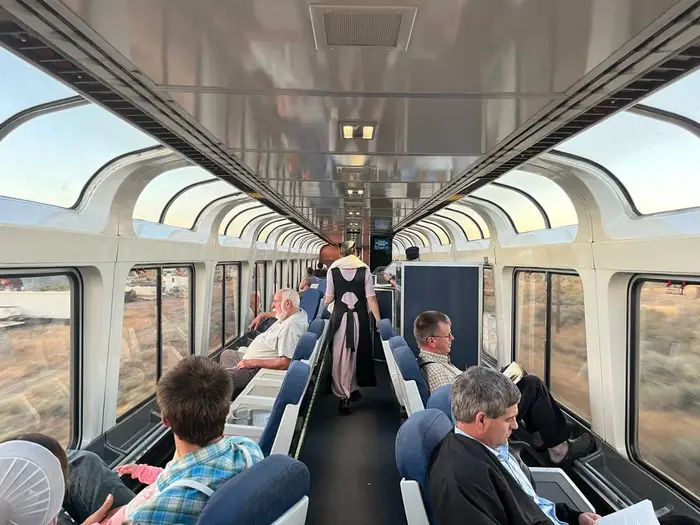
I found pretty views under the observation car and avoided the crowds.
Everyone wants to be in the observation car during the most scenic stretches of the Zephyr’s route (especially through the Rocky Mountains), making it tricky to find a seat.
If it’s full, head to the café car, which is right below the observation deck on the Zephyr. There are tables right up against the large windows, and you’ll have almost as good a view as you’d get upstairs.
You have to buy something to sit there, but I thought it was worth it for a change of scenery.
Bring snacks, especially if you’re not a fan of the options in the café car.
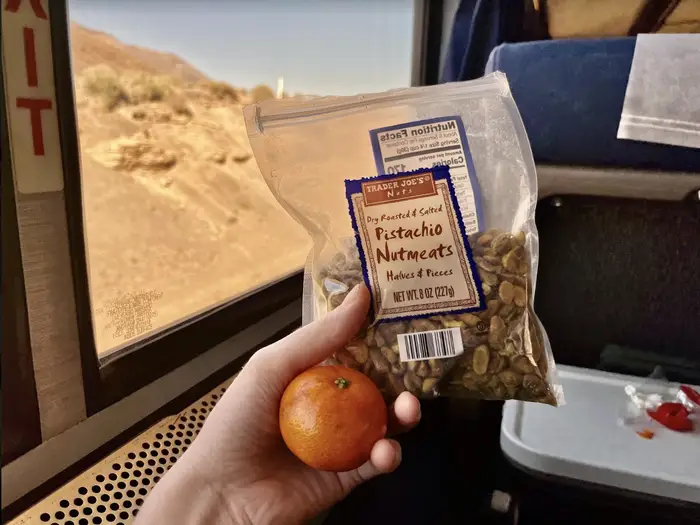
I brought some food to eat on my long journey.
I stopped at Trader Joe’s before my trip and came fully loaded with some granola bars, clementines, and pita chips.
My haul kept me from being too hungry when the café car ran out of everything I wanted to eat.
Though there were vegetarian options on the train, if you’re vegan or have any special dietary needs or allergies, it’s probably best to bring some of your own food.
Trains are frequently delayed, especially when they’re traveling longer distances.
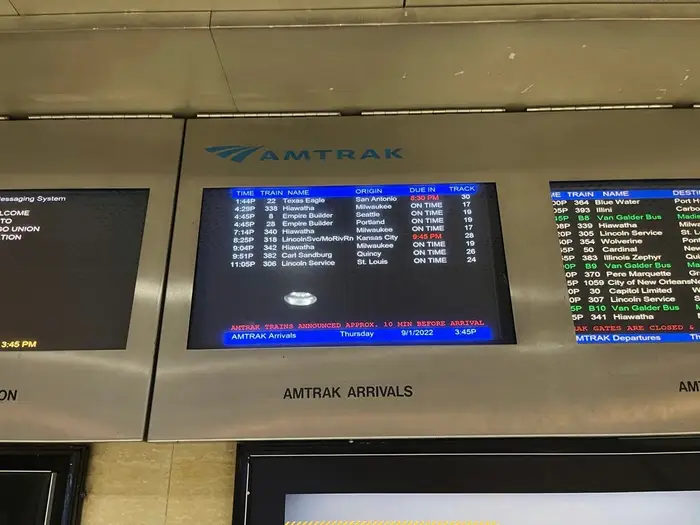
Delays can be a problem if you have connecting trains.
The railroads that Amtrak trains travel on are owned by private companies that also cater to freight trains. That leads to a lot of delays, as Amtrak waits to let other trains pass.
A longer route like the California Zephyr’s can fall behind schedule by hours each time.
I was lucky that my train to Chicago was only about an hour delayed, so I ended up having two hours to make my connection to the Cardinal. But if you have a tight layover, it’s something to keep in mind when purchasing your ticket.
There was free hot water on the trains.
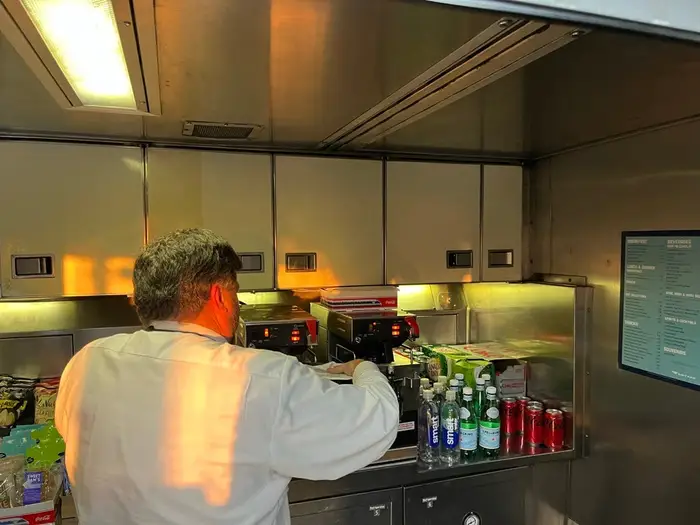
Some people brought “just add water” meals on the train.
I realized on this journey that the café car had a supply of free hot water. You can bring your own foods (like instant ramen) or tea and just ask them to fill up your cup.
I saw several passengers doing so and wished I’d thought of that.
There are also some spigots dispensing drinking water throughout the train, but on this journey, most of them didn’t work. Even the ones that worked dispensed water very slowly. I wanted to avoid buying bottled water, so I made do.
Bring a pillow and a blanket to make sleeping more comfortable.
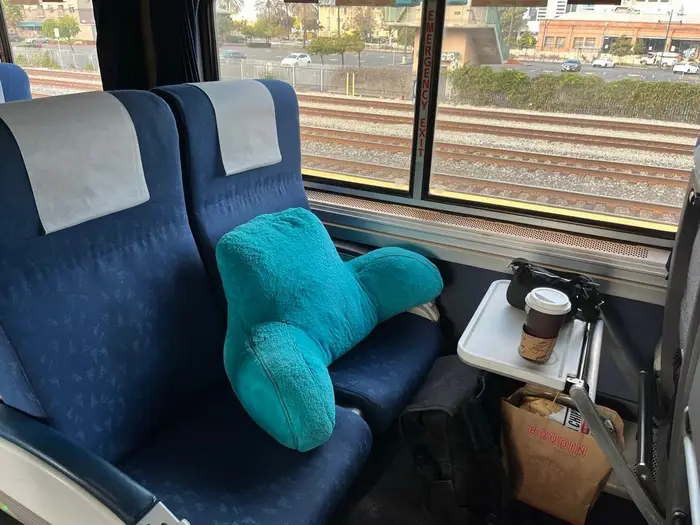
I was glad I brought a comfortable pillow.
My seats leaned back and had a leg rest that extended outward, making it much easier to sleep than on a plane.
Even so, a pillow is essential — either a travel pillow that you can use to sleep upright or a standard one that you can lean against the window.
A blanket was great to have, too. My jacket wasn’t enough to keep me warm at night when it got really chilly.
Step out and enjoy the stations when you have time.
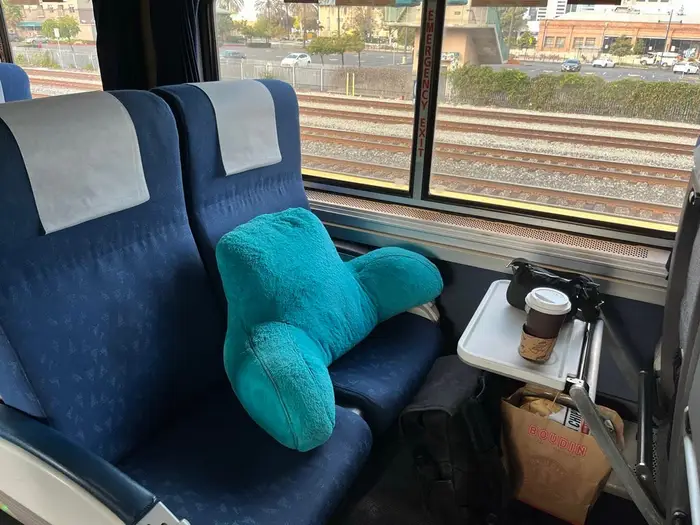
Union Station in Denver.
Amtrak stops tend to be pretty short — you can’t even get off the train for many of them, and others are just 10-minute smoke breaks.
Occasionally, at major stops, though, there’s enough time to get out and enjoy the station. If you get off, just listen closely to the announcements from the conductor to know when your train will be leaving.
Union Station in Denver had great restaurants, shops, and bars to enjoy while I waited for my train to depart.

